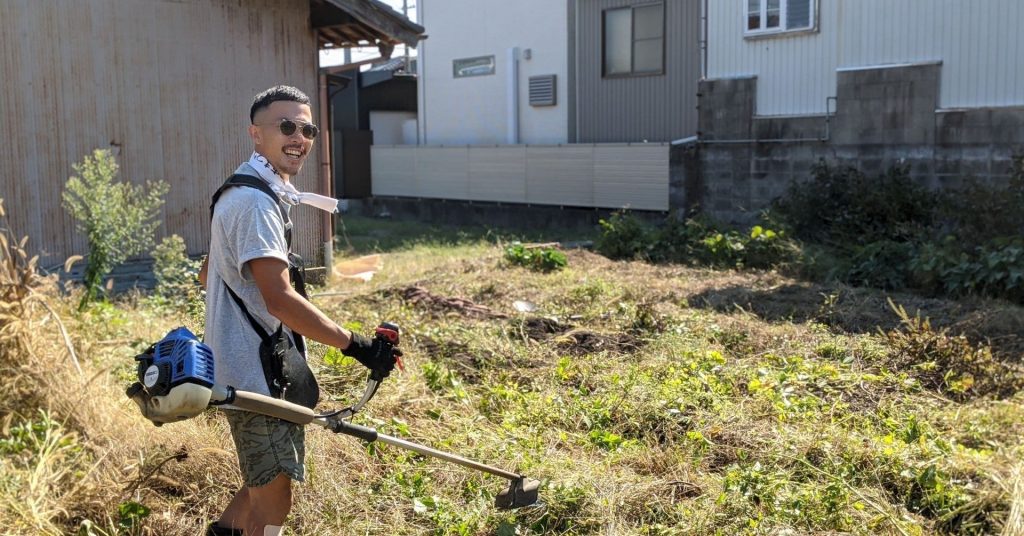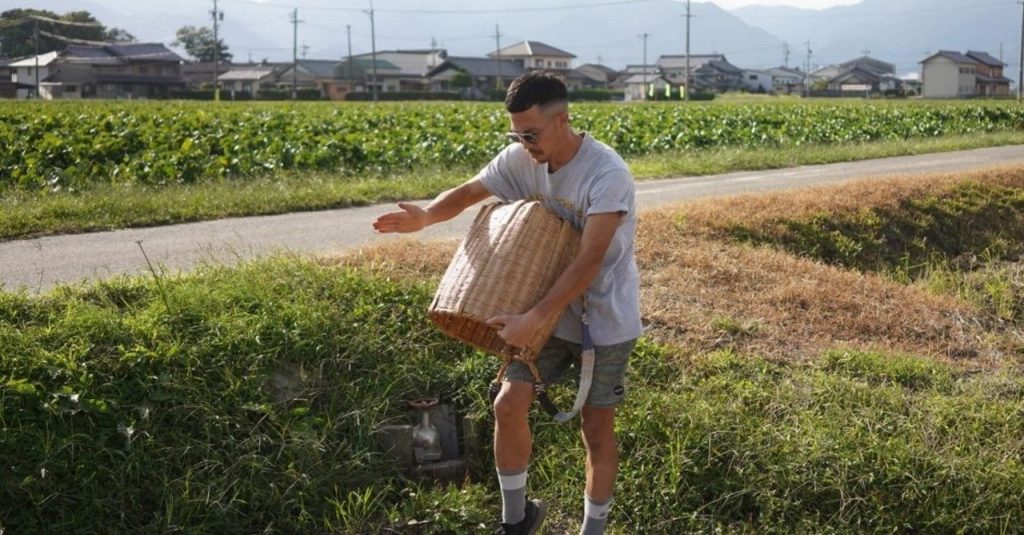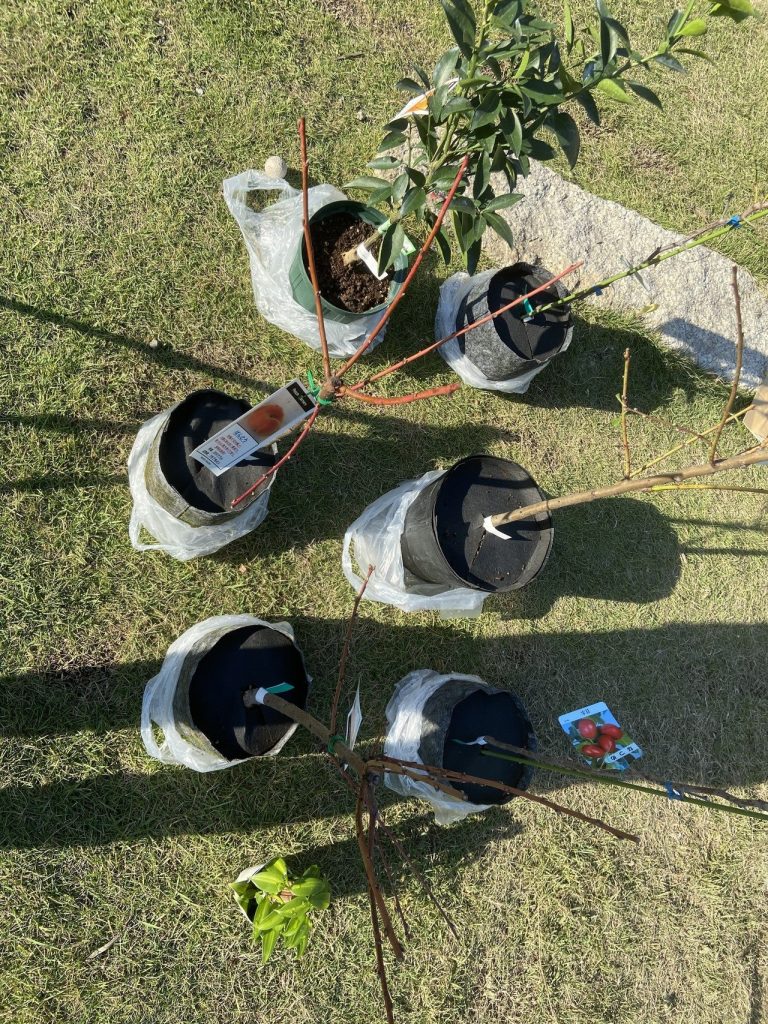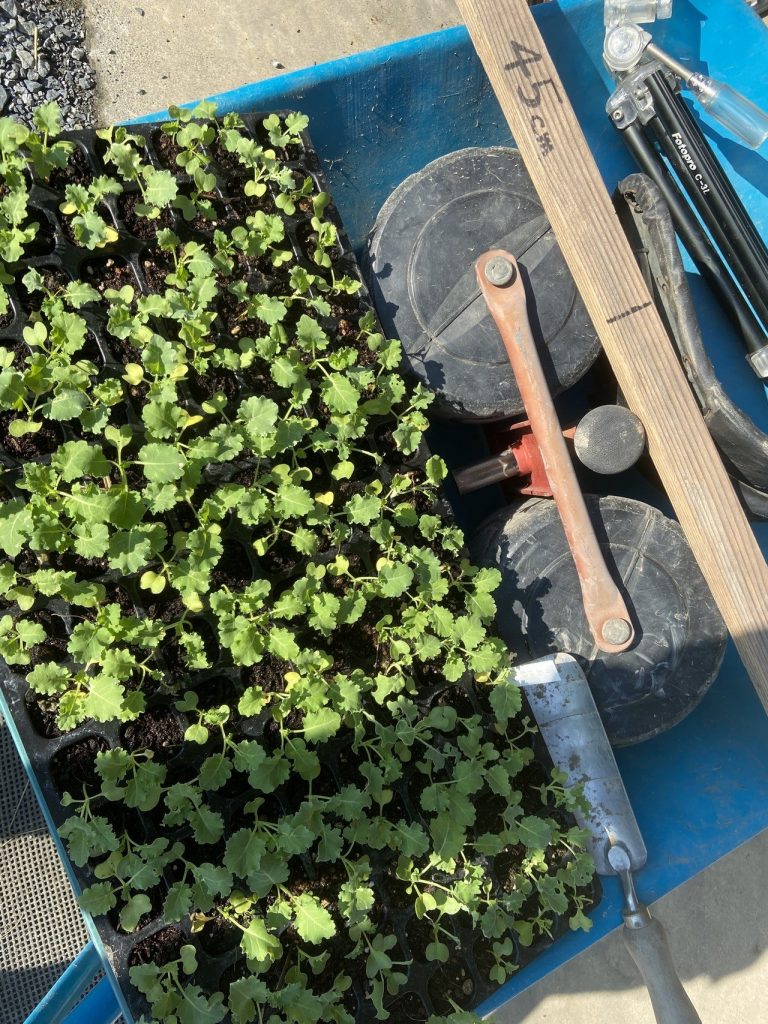By Sarah Bijlsma
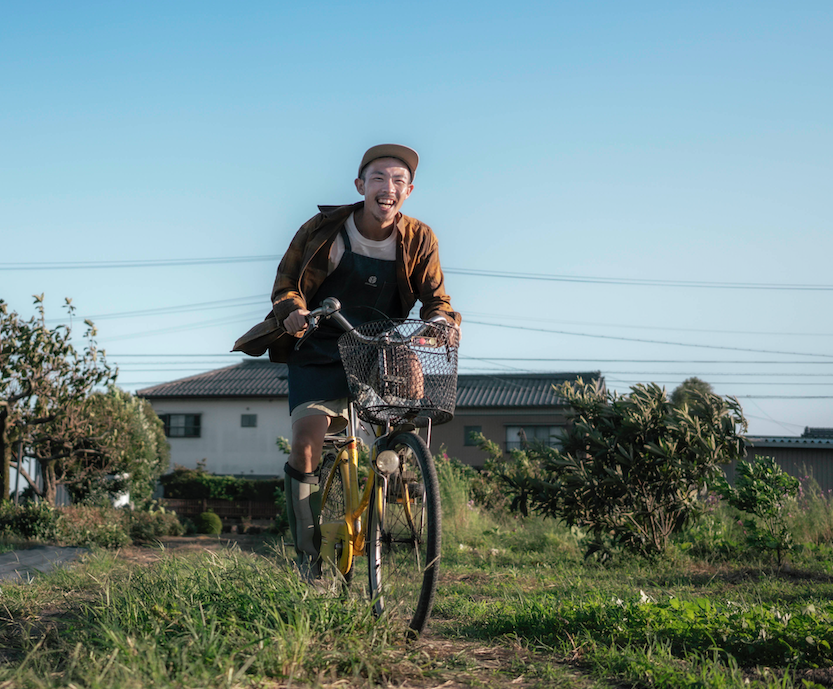
Copyright©Ryutaro Hagi 2020
A little over a year ago, Ryutaro Hagi decided to quit his Tokyo job, to move back to his birthplace in Mie Prefecture, and to become an organic farmer. While growing up on a farm as a child, he had never considered this kind of life for himself. Quite the opposite; Ryutaro studied transnational communication in Kyoto, spent a year in the U.S., has friends living all over the world, and started his career successfully at an international travel agency in Osaka.
Interestingly, it was exactly Ryutaro’s interest in people and media from outside of Japan that inspired him to go local. His business partners, who politely refused Japanese meat and fish-based dishes, the Netflix documentary Cowspiricy (2014) on the global meat industry, a 2018 keynote speech by Rose Marcario, the CEO of Patagonia at the time, made him aware of the large part the food industry plays in contributing to global warming.
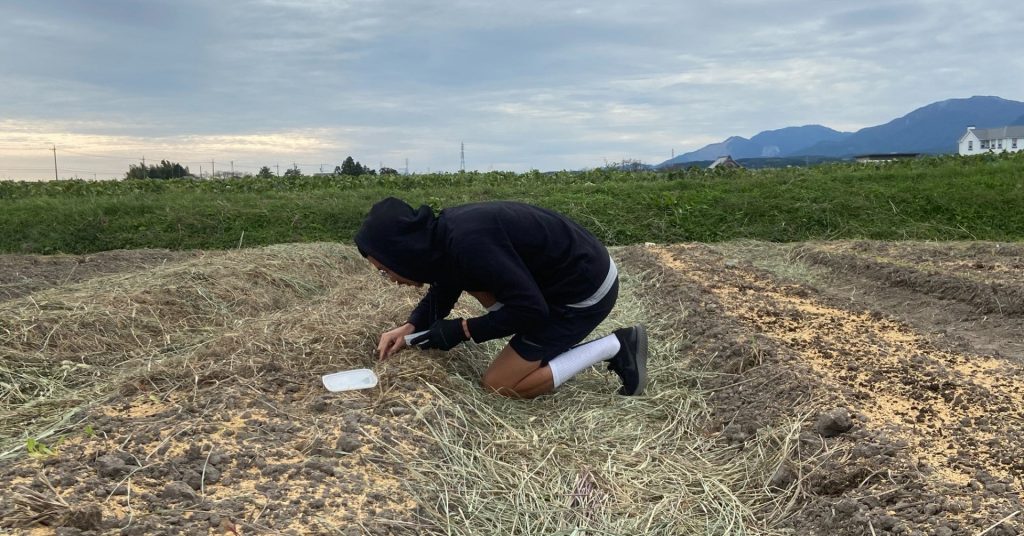
Copyright©Ryutaro Hagi 2020
Ryutaro tells me that what struck him the most in Marcario’s talk, was that she mentions that soil acts as a sponge for carbon and that if agriculture would be fully organic, the CO2 emissions annually produced would be completely sequestered in the soil. Over time, he became aware that organic farming offers a solution to a wide variety of environmental threats, both globalized issues and those particular for Japan, like water pollution and the countries dependency on foreign food supplies. Being unable to travel because of the Covid-19 pandemic, he took the opportunity to change his life and started Aina Farm on a small plot of land that he borrows from his father. Aina, as he explains on his website, means “soil” or “land” in the Hawaiian language—producing healthy soil without chemicals is what organic farming is all about.
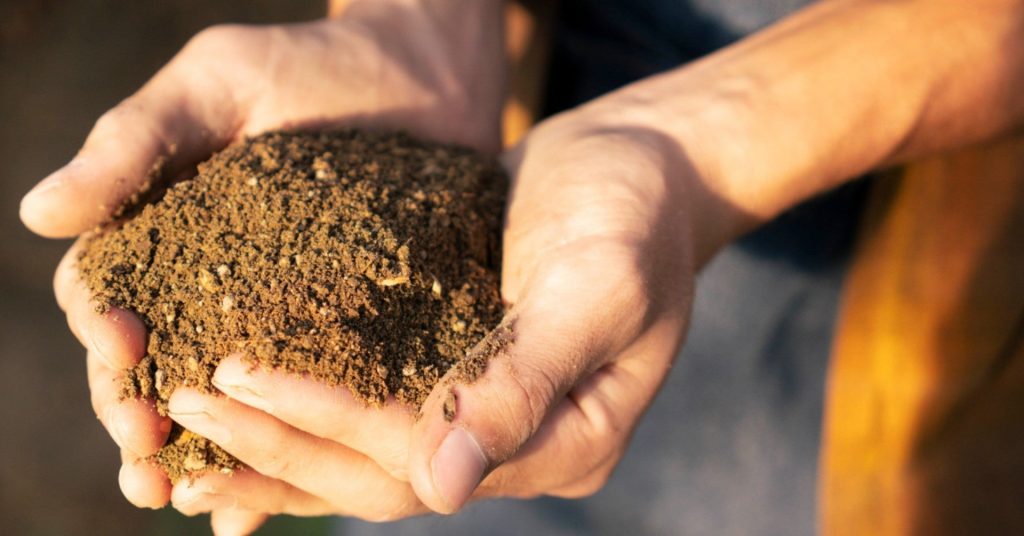
Copyright©Ryutaro Hagi 2020
On the website of Aina, people can learn all about Ryutaro’s new life. In a promotion video for the farm, he talks in English about nature and his own dreams of becoming a farmer. Aina Farms Instagram page, which has more than 1000 followers, shows colorful pictures of growing crops, children playing with vegetables, and Ryutaro himself working the fields. In addition, he publishes long articles on his blog sharing his own experiences while referring to American films, books, and theories of human-nature entanglements. Looking at these posts, I think to myself that his life looks very different from the image of a farming life that I know from the Netherlands. Rather than a simple life, it looks like out of a fashion magazine.
Copyright©Ryutaro Hagi 2020
When I ask him about this, Ryutaro explains that this is exactly what he is strategically aiming for. In Japan, there is a fundamental need for more agricultural businesses. But farming suffers a negative image; it is difficult, badly paid, and perhaps even seen as backward. Making use of social media, he wants to change this image and show young Japanese that farming can also be fashionable, fun, important, and rewarding. That farmers are “cool” and can speak multiple languages, that they also travel the world.
Furthermore, since Ryutaro moved to Mie he realizes that the older generation of farmers—including his father—have their very own ideas about best practices. Growing crops without chemicals does not make any sense to them. In his heart, he wants to tell them directly to stop destroying the earth. “But that generation is very stubborn,” he says. “And also, this is everything that they know and grew up with. Picking a fight is not the way to reach them. But in the end, it is all about supply and demand. They do not listen to me and do not care about the environment, but if more people choose to buy organic products, also that generation will have to change. That is why I do my best to grow healthy vegetables and post those cool pictures on Instagram.” He pauses and smiles, “you know, I do not want to be negative and against everything. I just want to be an inspiration to others.”
Copyright©Ryutaro Hagi 2020
What I find so fascinating about Ryutaro’s story is that it is defined by a variety of interwoven scales. On the one hand, his practices as a farmer are fundamentally local; the crops that he grows and the physical work he performs all depend on the conditions of this one plot of land somewhere in the middle of Mie prefecture. On the other hand, Ryutaro’s story is largely shaped by events and thoughts originating outside of Japan. And on his turn, social media allows him to spread his message to people living in very different parts of the world. This illustrates that the global and the local are neither easily defined, nor simply dichotomous. Rather, Aina Farm can be seen as a place where different sets of relations intersect, and where nature and technology collaborate.

